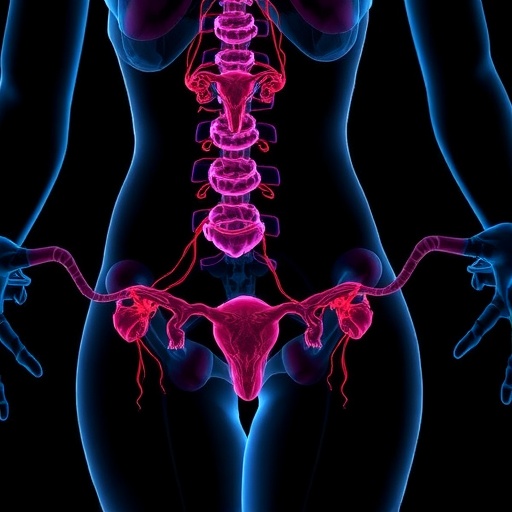Recent research has revealed a promising potential for probiotics in mitigating ovarian angiogenic disturbances in women suffering from letrozole-induced polycystic ovary syndrome (PCOS). This study, conducted by Areloegbe et al., published in BMC Complementary Medicine and Therapies, sheds light on the underlying mechanisms of PCOS and the beneficial effects of probiotics on reproductive health. With the prevalence of PCOS affecting a significant portion of the female population, understanding and addressing its symptoms is of great urgency.
Polycystic ovary syndrome is a complex endocrine disorder characterized by a combination of hormonal imbalances, metabolic dysfunctions, and reproductive abnormalities. By disrupting the normal ovulatory process, PCOS can lead to an array of complications including infertility, obesity, insulin resistance, and cardiovascular risks. Traditional treatments have focused on hormonal therapies; however, these come with numerous side effects that can deter patient compliance over the long term.
In recent years, the potential for using probiotics as a therapeutic avenue has surfaced, revealing interest in the gut microbiome’s impact on metabolic health. The gut microbiome plays a pivotal role in regulating systemic inflammation, which has been linked to the pathophysiology of PCOS. Previous studies suggested that altering the microbiome’s composition through dietary interventions might improve metabolic and reproductive outcomes.
In this groundbreaking research, the authors explored how probiotics can restore the dysregulated angiogenic processes in ovaries affected by letrozole. Letrozole, an aromatase inhibitor frequently used to induce PCOS-like symptoms in experimental models, mimics the ovarian disorder’s characteristics. The study collected data from various experiments, emphasizing the need to investigate the role of angiogenesis—the formation of new blood vessels—within the pathology of PCOS.
By examining the ovarian tissues of letrozole-induced rats, the researchers evaluated key angiogenic markers, including vascular endothelial growth factor (VEGF) and basic fibroblast growth factor (bFGF). The results illustrated a significant increase in these markers, suggesting that letrozole administration led to enhanced angiogenesis, which could contribute to the development of ovarian cysts and subsequent reproductive complications.
However, upon administering probiotics concomitant with letrozole, a notable reversal of this angiogenic disturbance was observed. The probiotic treatment effectively reduced the levels of VEGF and bFGF, indicating a potential therapeutic approach towards normalizing angiogenic signaling. This finding underscores the importance of probiotics in mitigating the adverse effects of hormonal therapies and their direct implications for women with PCOS.
Moreover, the study delved into the anti-inflammatory properties of probiotics. Chronic low-grade inflammation is recognized as a contributing factor in the progression of PCOS. The enteric microbiota derived from probiotic strains demonstrated the capability to modulate inflammatory responses and improve gut barrier function. The research revealed that probiotics exerted a significant influence on cytokine production, resulting in a more favorable microenvironment within the ovaries.
The implications of this research extend beyond ovarian health. By addressing the gut-ovary axis, the authors highlight the interplay between gut health and reproductive function. This suggests a holistic approach to treating PCOS, where dietary modifications involving probiotics could serve as an adjunct to conventional therapies. The utilization of probiotics holds considerable promise as an innovative and safe alternative, particularly for women seeking to minimize medication-induced side effects.
Further investigation is warranted to confirm the underlying mechanisms through which probiotics exert their beneficial effects. Future studies should explore the specific strains of probiotics that show the most efficacy in improving ovarian function and the precise dosages required for optimal results. Understanding the synergistic effects between diet, microbiome, and hormone management can pave the way for a more integrated and personalized approach to PCOS treatment.
In interviews, the lead author, Dr. Areloegbe, emphasized the necessity for expanding this research into human trials. “While our animal model results are compelling, we need to elucidate the effects of probiotics in the clinical setting. This could potentially reshape the landscape of PCOS management,” he stated. The enthusiasm shared among researchers underscores the need for an interdisciplinary approach that encompasses both nutrition and gynecological health.
As awareness regarding the significance of gut health in overall well-being grows, the healthcare community is urged to consider the role of probiotics in preventive healthcare strategies. The quest to understand the link between the gut microbiome and hormonal regulation is becoming increasingly vital, producing an essential dialogue around dietary influences on reproductive health.
Given the rising incidences of PCOS worldwide, there exists a compelling need for alternative and complementary interventions capable of addressing this complex condition. By drawing upon the advancements in nutritional science and microbiome research, healthcare professionals may shift towards preventative strategies rather than solely relying on pharmacological interventions.
This remarkable study on probiotics is likely to galvanize interest across various scientific fields, challenging preconceived notions about treatment modalities for hormonal and metabolic disorders. As continued research culminates in novel findings, a more nuanced understanding of PCOS will undoubtedly emerge, offering fresh perspectives on how best to support women’s health.
Ultimately, the evolving landscape of PCOS treatment futures a blend of medical innovation and wellness principles grounded in natural therapies. As this line of research progresses, it remains essential for both patients and healthcare providers to stay informed about therapeutic options that can enhance the quality of life for women affected by this condition.
In conclusion, this pioneering exploration marks an important milestone in the journey towards rethinking PCOS management. Probiotics appear poised to offer a multifaceted therapeutic approach capable of addressing not only reproductive health but also broader metabolic concerns. As we look ahead to future breakthroughs, the integration of microbiome research into clinical practice comes as a vital leap towards improving women’s health worldwide.
Subject of Research: The effects of probiotics on ovarian angiogenic disturbances in letrozole-induced polycystic ovary syndrome.
Article Title: Probiotics mitigates ovarian angiogenic disturbance in letrozole-induced PCOS.
Article References:
Areloegbe, S.E., Abugu, I.A., Ajadi, I.O. et al. Probiotics mitigates ovarian angiogenic disturbance in letrozole-induced PCOS. BMC Complement Med Ther 25, 346 (2025). https://doi.org/10.1186/s12906-025-05109-0
Image Credits: AI Generated
DOI: 10.1186/s12906-025-05109-0
Keywords: Probiotics, ovarian health, polycystic ovary syndrome, angiogenesis, microbiome.




